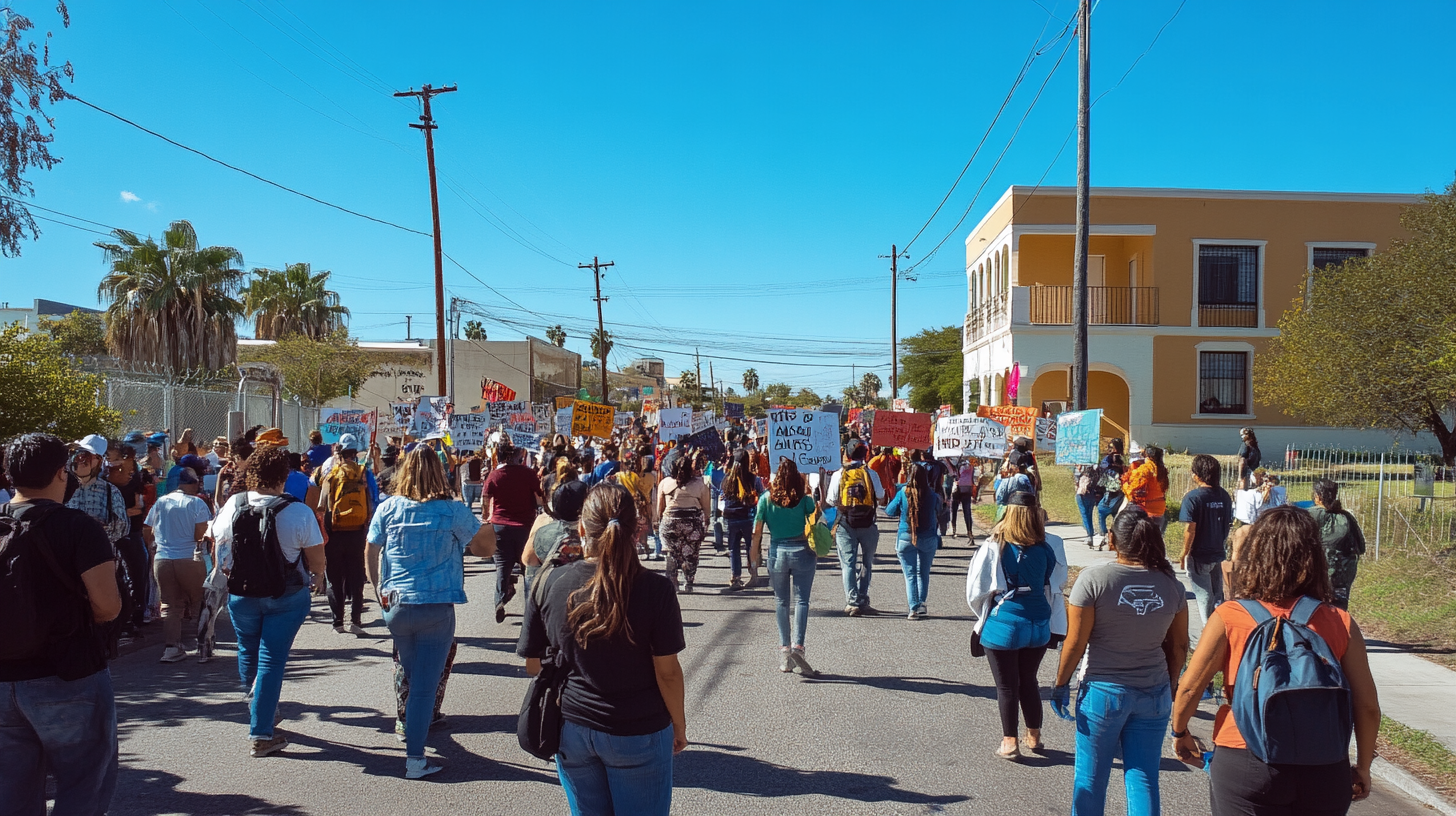Protestors Rally Outside Valley Congressman’s Office in Brownsville Over Immigration Bill
A significant demonstration unfolded on Friday outside Congressman Vicente Gonzalez’s office in Brownsville as protestors expressed deep dissatisfaction with his support for the Laken Riley Act, a controversial piece of legislation aimed at deporting undocumented immigrants charged with certain minor crimes. The protest has captured the attention of RGV residents, highlighting a pivotal moment in the ongoing national debate on immigration laws and their local impact.
Understanding the Laken Riley Act
The Laken Riley Act is named after a college student from Georgia, whose death in 2024 at the hands of an undocumented immigrant has sparked national outrage and influenced the passage of the bill by the House of Representatives. If signed into law, this act would mandate the detention and deportation of undocumented immigrants charged with crimes such as burglary, theft, larceny, or shoplifting. While proponents, like Congressman Gonzalez, argue that such measures could prevent future tragedies, critics highlight the risk of criminalizing vulnerable communities and breaking families apart.
In his defense of the bill, Congressman Gonzalez stated, “Riley’s death was preventable, and the Laken Riley Act is a step towards ensuring the safety of our communities.”
Voices from the Protest
The protest in Brownsville drew people from all walks of life, unified by a common concern over the potential implications of the Laken Riley Act on the Valley’s immigrant population. Joaquin Garcia, Director of Organizing for LUPE (La Unión del Pueblo Entero), addressed the crowd, saying, “By supporting this bill, Congressman Gonzalez has failed to stand with us. Instead, he has chosen to align with a narrative that threatens the rights and safety of many in our community.”
RGV news has reported similar sentiments among several community members. Maria Hernandez, a long-time resident of Brownsville, expressed her fears for her neighbors, stating, “Many of us have lived here peacefully for years, contributing to the community. This bill doesn’t just threaten undocumented individuals; it threatens the fabric of the Valley.”
The Local Impact: A Community in Limbo
The repercussions of the Laken Riley Act, should it pass the Senate, are particularly pronounced in South Texas, where a significant portion of the population is made up of immigrants. The Rio Grande Valley’s unique position as a border community means that immigration issues directly affect the lives of Valley residents, touching on employment, education, and social services.
Some local leaders argue that the act could strain public resources and trust within immigrant communities. Nancy Ramirez, an immigration attorney in McAllen, noted, “Legislation like this not only undercuts years of effort in community building but may also discourage individuals from reporting crimes out of fear of deportation.”
Historical Context and Ongoing Issues
The debate over stricter immigration laws is not new to the Valley. Similar policies have prompted waves of protests and public discussions in the past, highlighting a long-standing tension between maintaining border security and protecting the rights of those who have built their lives in these communities. The Laken Riley Act is merely the latest chapter in this ongoing narrative.
The recent protest aligns with a broader pattern of activism in the region, where residents routinely mobilize for various causes impacting the community. From environmental advocacy to educational reforms, Valley residents have repeatedly made their voices heard.
Potential Future Implications and Perspectives
Looking forward, if the Senate were to pass the Laken Riley Act, there could be lasting implications for both the immigrant population and wider Valley society. The potential increase in deportations would likely spark further activism and advocacy efforts from local organizations working to support affected families.
However, supporters of the bill maintain that enhancing safety and accountability is a priority. They argue that effective implementation could deter criminal activity and ensure that community resources are directed towards law-abiding residents, thereby cultivating a safer environment.
Resources and Support for Valley Residents
Amidst the uncertainty, various local organizations offer support and resources to those affected by the potential legislation. Community-based groups like LUPE continue to provide legal assistance and advocacy, helping RGV residents understand their rights and options.
For those interested in learning more or participating in ongoing conversations, the next community town hall organized by LUPE will be held on January 20, 2025, in McAllen. Attendees are encouraged to share their stories and connect with peers facing similar challenges.
As the Rio Grande Valley braces for the outcome of the Laken Riley Act and its effects, it remains a testament to the power of community and the importance of maintaining dialogue on pressing local issues. Through balanced discussion and active participation, Valley residents work towards shaping a future that respects both safety and human dignity.







